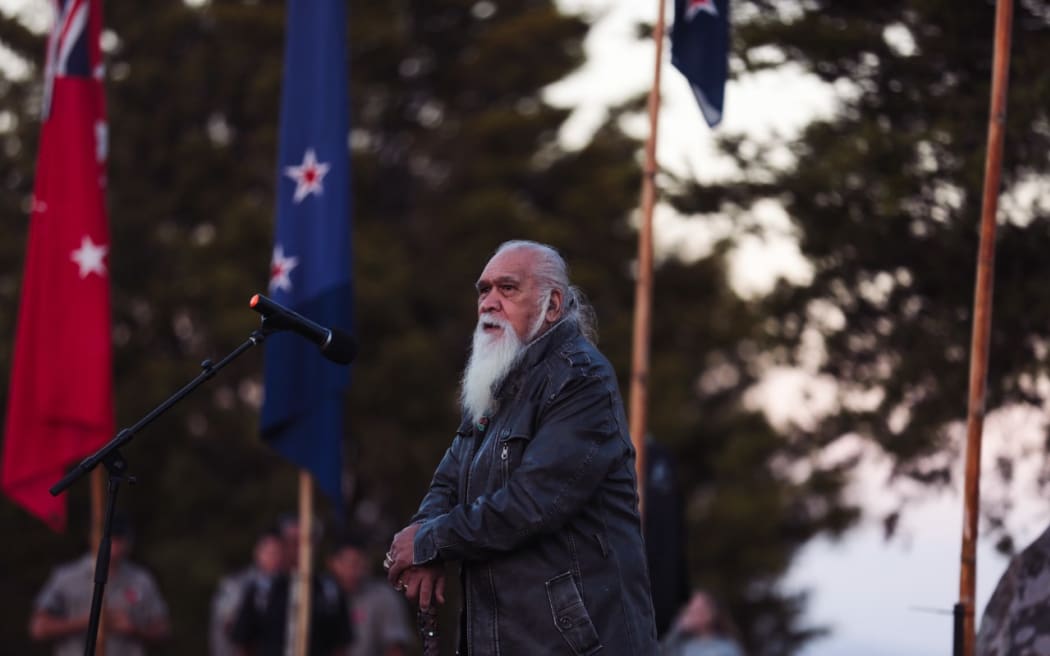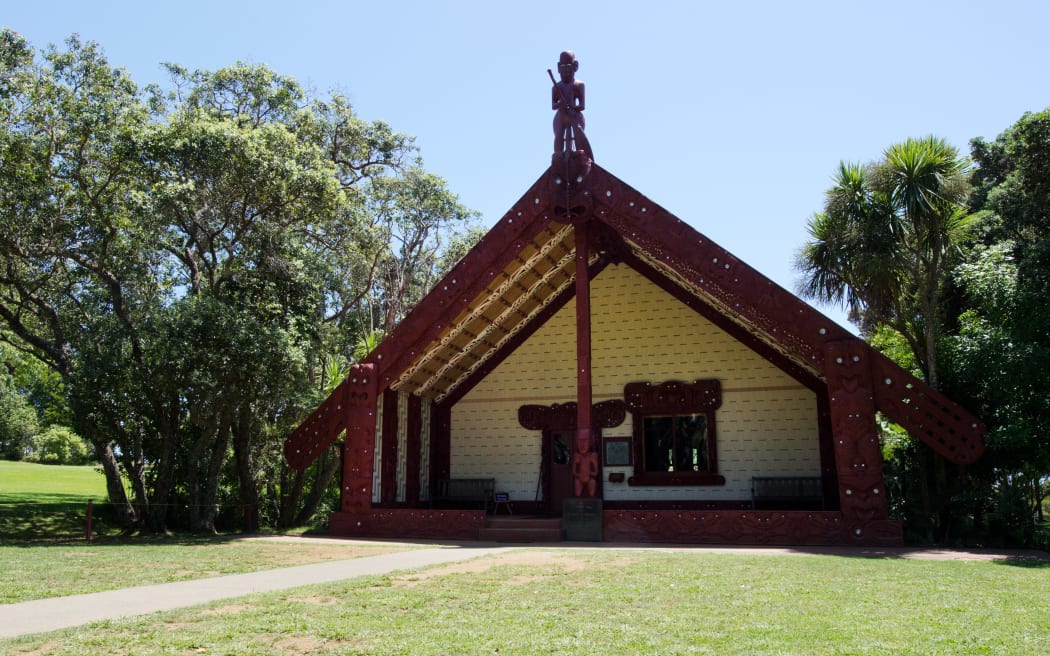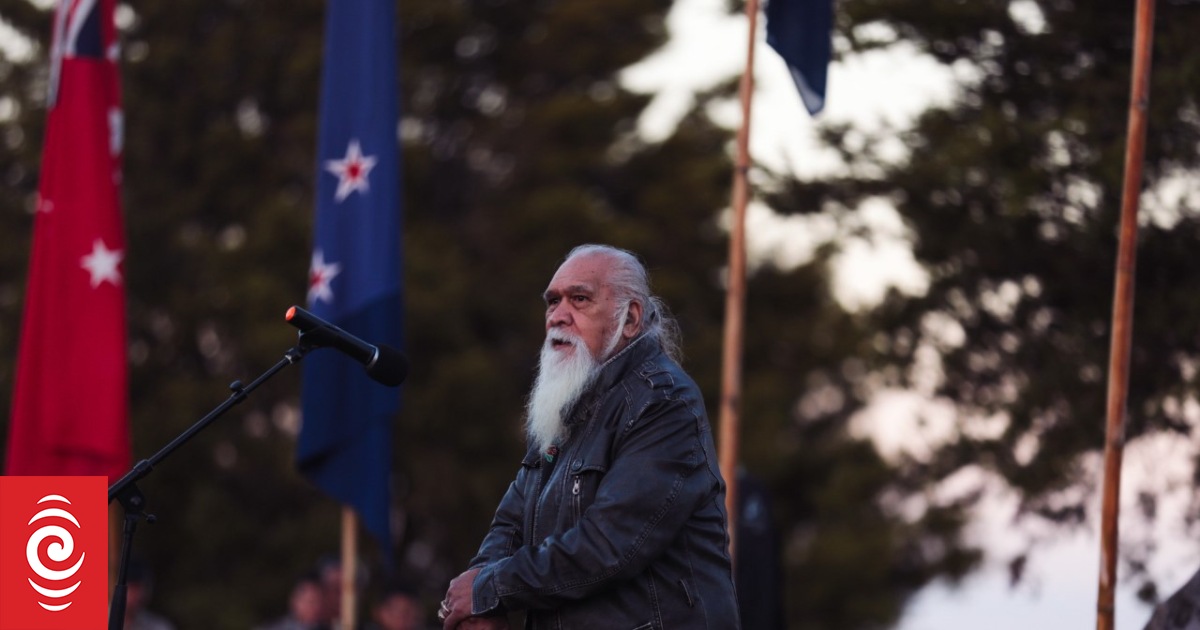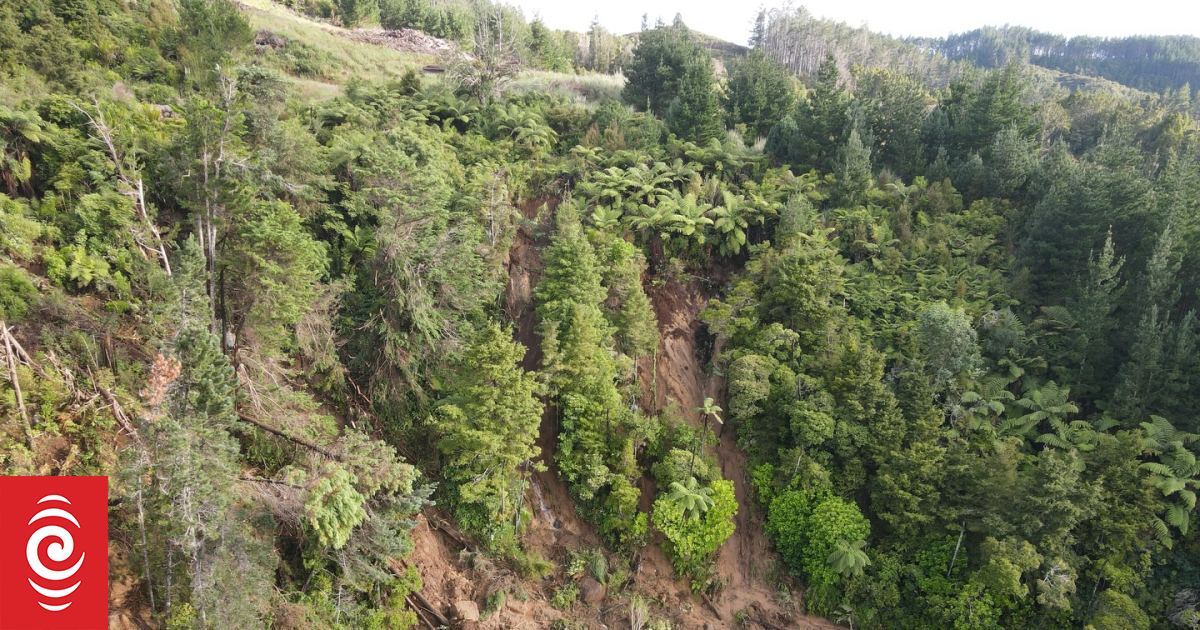
Hone Sadler.
Photo: RNZ / Samuel Rillstone
The Waitangi Tribunal has reported back about one of the largest Treaty claims ever heard – a document described as “groundbreaking”, and “defining” for Māori in Te Tai Tokerau.
Some of the evidence at Te Paparahi o Te Raki hearings was presented more than a decade ago and the report was more than 1800 pages long.
It said the Crown repeatedly overstepped its authority to govern, leading to a widespread erosion of rangatiratanga as well as warfare and extensive loss of land.
It also said William Hobson’s proclamations of sovereignty and the Constitution Act were some of the most severe Treaty breaches.
The Tribunal also recommended the Crown return all Crown-owned land in the district to Māori and provide economic compensation.
There are now significant implications for Ngāpuhi’s ongoing Treaty settlement negotiations with the Crown.
Ngāpuhi elder Hone Sadler told RNZ some kaumātua put their lives on hold collecting and presenting evidence to the Tribunal, and many did not live to see this day.
“I’m shedding tears of joy but also of sadness for my people, who gave their all to try and get a fair settlement for Ngāpuhi. That was what the process was supposed to bring – a fair and equitable result.”
Sadler is one of many who said the report’s findings significantly strengthen the iwi’s claim.
He was pleased the Tribunal rejected the Crown’s version of history presented at the hearings.
“The Crown was quite scathing in its determination that none of this occurred. And its evidence, that it brought to substantiate its stance, wasn’t sufficient.”
The report said the breaches caused “severe and lasting prejudice” for northern iwi.

Waitangi Treaty Grounds.
Photo: Rafael Ben-Ari/Chameleons Eye/ 123RF
Te Rūnanga a Iwi o Ngāpuhi chair Wane Wharerau (Ngāpuhi) said this had caused extreme deprivation.
“Whether that be via health, employment, imprisonment – it extends right throughout the whole realm of our lives. So with it, that prejudice has indeed, sort of embedded itself in our DNA to a point. It’s a long road to recover from that.
“But with goodwill and improving our relationships with the Crown – and I do see that there are efforts to to improve relationships – we will find a pathway forward.”
In terms of Ngāpuhi’s settlement negotiations, Wharerau said: “[The report] does make our case stronger. However, we are in a predicament where we’re ensconced in a process and a structure, jurisprudence, of Britain.”
Tai Tokerau District Māori Council chair Rihari Dargaville (Ngāpuhi, Te Hikutu, Ngāti Manawa, Ngāti Rahiri, Whangaroa), 77, is one of the oldest surviving kaumātua who presented evidence to the Tribunal over the past decade, for the claim officially called Wai 1040.
“I’ve said to the current minister and the minister before that… Ngāpuhi will never move forward until we address this question of rangatiratanga. From my perspective, I see it in terms of the loss, the huge economic loss of land, by Ngāpuhi hapū. That land is no longer there. The Tribunal acknowledges that – that we are landless.”
The report made him more optimistic about Ngāpuhi treaty settlement negotiations, but he knew there would be a backlash.
“What is going to happen now, all of the rednecks… they’re going to say, ‘Oh, there they [Ngāpuhi] go again.’ Well, I don’t give a damn.”
Te Kotahitanga Ngāpuhi hapū forum co-chair Pita Tipene (Ngāti Hine, Ngāpuhi), said the report was a “groundbreaking” and “defining” moment for Ngāpuhi history, “showing that the Crown has been in denial and has largely refused to hear those [Māori] voices”.
“It really does justify what our people have been saying forever.”
He said it also justified why Ngāpuhi had not settled prior to the report: “This was as much about mana as it was about money.”
Constitutional implications could be ‘widespread’
Lawyer Charl Hirschfeld (Ngāti Porou), closely involved in the claim, said the way Te Tai Tokerau’s history was written about, and taught, would now need to change.
He said past misinterpretations had done serious harm.
“It has altered perceptions – stereotypes for example, misunderstandings, or otherwise completely erroneous perceptions – of what happened in the past.”
He said the Crown’s failures had been “very substantial indeed” and the Treaty settlement process to come, for Ngāpuhi, was “not just the big ticket items like cash or land”.
“Of course, they do matter and they’re essential and fundamental. On the other hand, it is also about acknowledgement and partnership, because that’s one of the key principles of the Treaty.”
The report recommended the Crown enter discussions with Māori on the constitutional make-up of Aotearoa and give effect to “Treaty rights” in the country’s constitutional processes and institutions, though it acknowledged the conversations would be challenging.
Te Rarawa leader Haami Piripi, who also shares whakapapa to Ngāpuhi, said the constitutional implications could be “widespread nationally”.
“There are aspects of the New Zealand government and the Crown’s sovereignty that are cast into doubt. And I think that that raises a really important constitutional question of how we arrange our futures together.”
RNZ requested an interview, but a statement supplied instead from government ministers said: “The Crown welcomes this report from the Tribunal. We will now carefully review and consider the Tribunal’s findings.”




